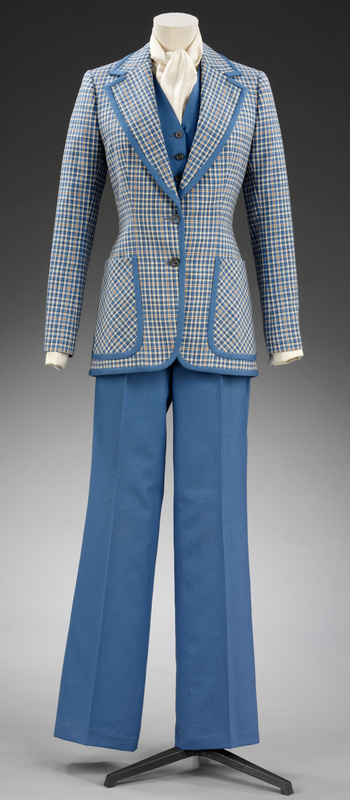|
(Image from Growth Coaching International, http://www.growthcoaching.com.au/articles-new/changing-the-lens-critical-reflection-through-coaching?country=au)
People who have worked with me or read any of my writing on reflection will know that I'm really keen on Stephen Brookfield's 'lenses' model for reflecting on teaching. he's recently updated his book so we have a 2017 version of the 1995 ideas, but really there is little difference. So I thought I would look for other models, so see if I am missing something new, or something that is useful. I found Terry Borton’s (1970) ideas - 3 stem questions: 'What?', 'So What?' and 'Now What?' that were developed by John Driscoll in 1994. Driscoll matched the 3 questions to the stages of an experiential learning cycle; and added trigger questions that can be used to complete the cycle. But this is old, and not very complex. Johns' model is based on five cue questions which enable you to break down your experience and reflect on the process and outcomes. John (1995) used seminal work by Carper (1978) as the basis for his model exploring aesthetics, personal knowing, ethics and empirics and then encouraging the reflective practitioner to explore how this has changed and improved their practice. But this is really designed with nursing practitioners in mind, and I am not sure that it really works too well for teaching? Tom Russell (2013) wrote a reflective article looking back on 35 years as teacher educator, and suggests that teacher educators rarely model reflective practice, fail to link reflection clearly and directly to professional learning, and rarely explain what they mean by reflection, with the result that student teachers may complete their initial teacher education with "a muddled and negative view of what reflection is and how it might contribute to their professional learning". (p.88) To be honest, in my role as external examiner I have seen this - trainees encouraged to reflect on their practice, but often offered no more of a structure with which to do this than 'reflection in and on action' which is really not much use in this context. For Russell, the problems relating to reflective practice result from the fact that teacher educators have not sufficiently explored how theories of reflective practice relate to their own teaching, and so have not made the necessary "paradigmatic changes" themselves which they expect their students to make. I would agree; it's lip service only, very often, that I see. And this can result in unhelpful and not very interesting egocentric descriptions of practice. Do we need to be constrained by existing models? Well, maybe not. But we do need a starting point. So after a bit of literature search, I think I would still go with Brookfield as far as my own and my students' practice goes. References Borton, T. (1970). Reach Touch and Teach, London: Hutchinson cited in Jasper, M. (2003) Beginning Reflective Practice, Cheltenham: Nelson Thornes. Brookfield, S. (1995) Becoming a Critically Reflective Teacher. San-Francisco: Jossey-Bass. Brookfield, S. (2017). Becoming a critically reflective teacher. Second Edition. Jossey-Bass: San Francisco Driscoll J. (1994) Reflective practice for practise. Senior Nurse. Vol.13 Jan/Feb. 47 -50 Johns, C. (1995). Framing learning through reflection within Carper’s fundamental ways of knowing in nursing. Journal of Advanced Nursing. 22, 2, 226-234 Russell, T. (2013) 'Has Reflective Practice Done More Harm than Good in Teacher Education?' Phronesis, 2(1), pp. 80-88
1 Comment
 My search for authenticity and for critical space I am very interested in my feelings as I start to put this story down. I have done a fair amount of reading on narrative inquiry and auto-ethnography. I think I am starting to realise how much this matters, not only at a personal level, but also because I am concerned that my research should matter, too. I hadn't ever really considered my position as a woman in research. Coming as I did from a liberal middle class home, I was always aware of my privilege as being middle class and white. But I was also taught that being female was a good thing, too. I never really realised for many many years that some women had a rough deal. I spent some of my childhood in a rough overspill area of Manchester. I remember my parents talking about a woman who had been hit by her husband, and they talked about how her previous husband had also battered her. My mum talked about how some women keep on going back to abusive partners and how others choose abusers again and again. That whole concept was a revelation to me, and it was the first time I think I realised that men and women were different in terms of power. When I went to Manchester to study for my first degree I read psychology. I still think I was lucky that I was brought up as a social scientist; at that time this was a relatively tolerant arena and so gender politics were really an irrelevance to me; for a very self centred point of view I didn't feel that I had lost out because of being a woman, nor that I was misunderstood or that I was discriminated against. Perhaps I was falsely conscious. I don't know..... although looking back now thirty years I see that the undergrads were 80% female and only one of the lecturing staff at the time was female - Elena Lieven who is now a professor. I was also lucky enough to be studying at a time when Erica Burman was a postgrad and I took some of her seminars. She came to talk to my EHU psychology 3rd year group last year about deconstructing developmental psychology. An amazingly inspiring woman and one whom I admired then and still do now. But the whole patriarchal system stuff passed me by. I was concerned about race and about disability, and about the politics of developing countries, but my interest in sociology was really in the field of symbolic interactionism, where Wes Sharrock and John Lee both had a huge impact on my thinking. I loved reading Szasz, Laing, Wittgenstein, Searle and Winch. But again, feminism in no way really impacted on me. As I write, I find this story I am about to tell really interesting from a feminist point of view. My mum was working in FE as a lecturer in English when I was about ten. She was a fashionable woman and had worn a trouser suit to work. A smart trouser suit, as befitted a young lecturer in the 1970s. She had two or three; striking colours, beautifully tailored and they suited her. Not long after she had started her job at the local FE college she was called in by the principal and told that if she wore trousers again to work she would be sacked. I was only young so I wasn't party to the discussions that she and my dad must have had that night, but she DID wear a trouser suit the next day, and indeed she was sacked. That started a big, big row. The press were involved and sat outside our house for weeks. My father got hate mail accusing him of being a terrible man who could not keep his harlot of a wife under control. In the end my young brother and I were sent away for a few days to our grandparents' so we would be less upset by the furore. Mum gave interviews on TV and to the papers, all the time wearing trousers. In the end, she got her job back, at which point she resigned, and a local head teacher phoned her and offered her a job immediately. That head teacher became a good friend and in many, many ways a guardian angel for my mother for thirty or forty years after the 'trouser suit' events. There's a research paper here that I'm determined to wrote.... I got this from one of my ex-teacher trainees yesterday....if I ever needed a reason to do what I do, this was it. Hi Janet Hope you are well. Just to let you know, today I had an amazing lesson. I love teaching. I am very lucky to have a very enthusiastic group of learners. I am becoming very attached to them all. This is what I want to share with you. One of my learners is having a rough time at the moment. At the end of the lesson she waited until everyone had gone to tell me this; she said that she really didn't want to get up out of bed today, however, she thought, I love my Wednesday psychology lesson, Wednesday is my best day, I feel uplifted and I leave the class "buzzing all day". My learner is a sweetheart but also "true grit". and without stereotyping " you wouldn't mess with her or get on her wrong side lol". I felt so overwhelmed and proud. Then I remembered, days when I felt like that. However I would say the same in my head, "its janets lesson", and I knew I would be going in because I was going to your class. and I would always feel better when we were all together. I wanted to let you know that I thought of you. Really hate the paperwork, struggle to keep on top of it if I am honest, but I remember you saying how rewarding teaching is, and wow, I felt that today. Thank you for not only being a teacher but taking the time to listen to my fallen days, I will never forget you. KInd regards Your friend who you inspired x |
About me...
I was a psychology and social sciences teacher for many years and now I am in the throes of a leadership, teaching and research career in HE. I care passionately about education. This blog will show you why and how.
Categories
All
Archives
March 2023
|


 RSS Feed
RSS Feed